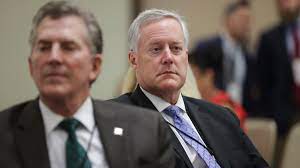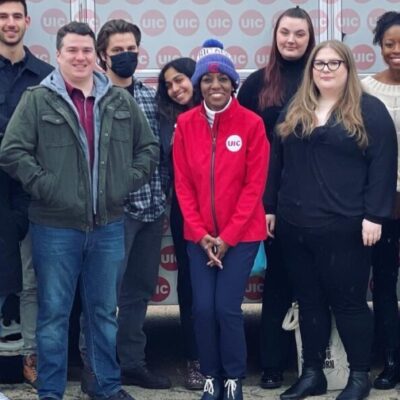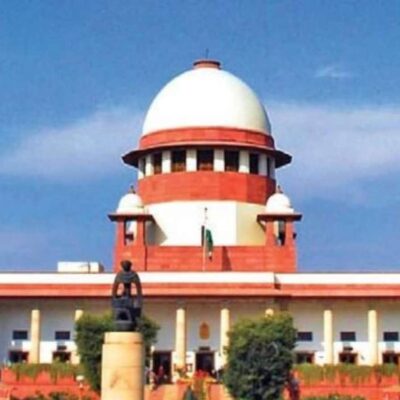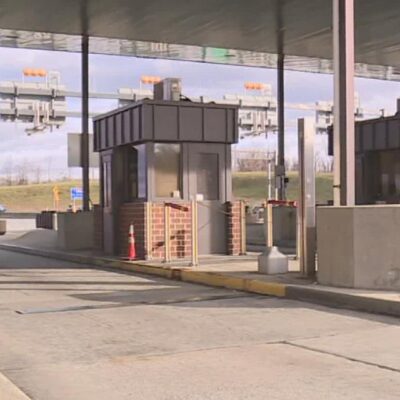India: Serious Concerns Raised at UN Rights Review

The Indian authorities need to right away undertake and act at the hints that United Nations member states made on the UN Human Rights Council’s Universal Periodic Review system on November 10, 2022, six worldwide human rights organizations stated today. The hints cowl a number key issues together with the safety of minority groups and inclined organizations, tackling gender-primarily based totally violence, upholding civil society freedoms, protective human rights defenders, and finishing torture in custody.
The organizations are the International Federation for Human Rights (FIDH), World Organisation Against Torture (OMCT), CSW, International Dalit Solidarity Network, Amnesty International, and Human Rights Watch.
All UN member states take part withinside the Universal Periodic Review (UPR) system, which examines their human rights document and proposes motion to enhance the human rights conditions of their international locations. In its file submitted to the UN beforehand of its overview, the Indian authorities claimed “it’s miles firmly dedicated to the promoting and safety of human rights.” However, withinside the beyond UPR cycles, India has unnoticed vital hints, together with to deal with growing violence in opposition to non secular minorities, make certain duty of its protection forces, and guard freedom of expression and non violent assembly.During the periodic overview, India’s fourth, a hundred thirty member states made 339 hints highlighting a number of the maximum pressing human rights issues withinside the country.
Since its remaining overview in 2017, India has gone through a severe regression in human rights below the Hindu nationalist Bharatiya Janata Party (BJP)-led authorities of Prime Minister Narendra Modi. The authorities has escalated its crackdown on impartial and democratic institutions, and is the usage of draconian counterterrorism and countrywide protection legal guidelines to prosecute and harass human rights activists, journalists, students, authorities critics, and non violent protesters. Attacks, discrimination, and incitement in opposition to non secular minorities are growing. The historically marginalized Dalit and Adivasi groups had been denied justice and equitable safety.
At least 21 international locations advised India to enhance its safety of freedom of faith and rights of non secular minorities, with numerous elevating issues over growing violence and hate speech and the authorities’s adoption of discriminatory guidelines such as “anti-conversion” legal guidelines.
Since Modi’s BJP got here to energy in 2014, it has taken diverse legislative and different movements which have made it lawful to discriminate in opposition to non secular minorities, in particular Muslims, and enabled violent Hindu majoritarianism, the organizations stated.
The authorities handed a citizenship regulation in December 2019 that discriminates in opposition to Muslims, for the primary time making faith the idea for citizenship. In August 2019, the authorities revoked the constitutional autonomy granted to the best Muslim-majority state, Jammu and Kashmir, and maintains to limition unfastened expression, non violent assembly, and different fundamental rights withinside the region. Since October 2018, Indian government have deported as a minimum thirteen Rohingya Muslim refugees to Myanmar no matter the dangers to their lives and protection.
Indian states have used legal guidelines in opposition to cow slaughter to prosecute Muslim livestock investors whilst BJP-affiliated organizations assault Muslims and Dalits on rumors that they killed or traded cows for beef. At least 10 Indian states forbid compelled non secular conversion, however they misuse the legal guidelines to goal Christians. States additionally put in force those legal guidelines to annoy and arrest Muslim guys in relationships with Hindu women. Throughout 2022, government in numerous BJP-dominated states demolished Muslim houses and houses with out prison authorization or due system, both as precis or collective punishment, maintaining them liable for the violence in the course of the communal clashes.
Twenty international locations stated that India need to enhance safety of freedom of expression and assembly, and create an permitting surroundings for civil society organizations, human rights defenders, and media to do their paintings. Some of those international locations expressed issues over using the counterterrorism regulation, the Unlawful Activities Prevention Act (UAPA), in opposition to activists, journalists, and contributors of non secular minority groups. Over the years, rights organizations and numerous UN human rights professionals have raised issues over using this regulation, that’s extensively criticized for failing to comply to worldwide human rights requirements, to detain activists and others for exercise their fundamental rights of freedom of expression and non violent assembly.
A range of nations raised issues over the Foreign Contribution Regulation Act (FCRA), the regulation used to modify overseas investment for nongovernmental organizations, and requested the authorities to check or amend the regulation to carry it line with worldwide human rights requirements.
The Indian government have used the regulation to close down overseas investment for heaps of civil society organizations, in particular people who paintings on human rights or the rights of inclined groups. Several UN our bodies have warned that the regulation is getting used to silence dissent. In October 2020, then-UN High Commissioner for Human Rights Michelle Bachelet stated that the act is “certainly genuinely getting used to discourage or punish NGOs for human rights reporting and advocacy that the government understand as vital in nature.”
Nineteen international locations stated that India need to ratify the UN Convention in opposition to Torture, a treaty it signed in 1997 however in no way ratified. India stated in each 2012 and 2017 UPR cycles that it remained dedicated to ratifying the treaty. But it hasn’t taken steps to satisfy its dedication whilst torture and different ill-remedy remain used automatically through police and different protection forces to accumulate records or coerce confessions.
Countries additionally advised India to deal with caste-primarily based totally discrimination; toughen efforts aimed toward assuaging poverty, enhancing get admission to to fitness care, secure consuming water, and sanitation, and supplying get admission to to unfastened and first-rate training for all children; make certain a clean, healthy, and sustainable surroundings; and toughen protections for children, women, and humans with disabilities.
The Indian authorities has stated that the “UPR is an vital mechanism that India absolutely supports” and “because the world’s biggest democracy, India is dedicated to the best requirements of human rights.”
The Indian authorities desires to comply with up at the issues raised through different member states on the UPR, which might be shared extensively through rights organizations and numerous UN our bodies, and take instantaneously steps to accurate route and guard the rights and dignity of all people, the organizations stated.




